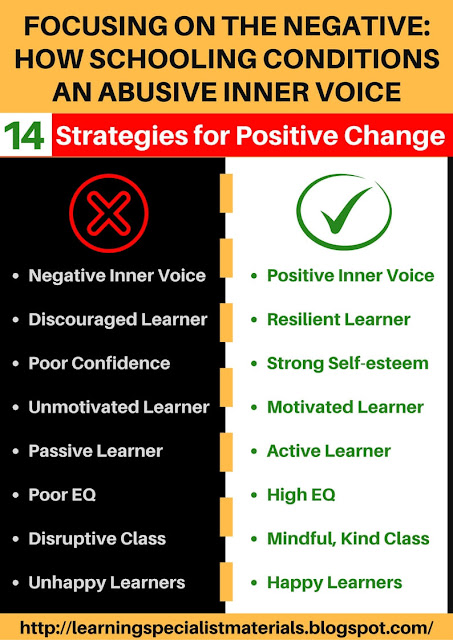This week I wanted to tell you about my online store, Good Sensory Learning. I’m Dr. Erica Warren, and I established this site so I could share all the materials that I have created over the last 20+ years as a learning specialist and educational therapist. When I first began my private practice, Learning to Learn, I had great difficulty finding fun and multisensory materials for my students that were effective and engaging. So back in 2005, I made it my mission to design and distribute high-end, remedial products as well as memorable, motivating lessons that bring delight to learning. If you would like to try a free sampling of my activities , CLICK HERE . How Are the Products Organized at Good Sensory Learning? You can download my Free Printable Catalog or you can browse the site using the grey “search all products” bar in the top right of any page with keywords such as dyslexia, working memory, and executive functioning. What’s more, drop down menus in the red banner allow you t
The current approach in many schools is to focus on the negative. When something goes wrong, such as missing assignments, incorrect answers, or avoidant behaviors, students are often punished with detentions, criticism, demerits and poor marks. In fact, it is difficult to see where we teach students how to build positive character strengths such as resilience, grit, confidence, self-control, curiosity and social intelligence. This overarching focus on the negative can take a toll on student motivation and many learners are also harassed with a negative inner voice that constantly undermines stamina as well as the learning process.
What Have I Been Witnessing in my Practice?Over the past 15 years in my private practice as a learning specialist, I have witnessed an increase of depression, anxiety, and learned helplessness in my students. Many of these discouraged learners have identified with and integrated negative labels to describe themselves such as “careless,” “lazy,” “unmotivated,” “liar,” and “stupid,” to name a few, that have provoke avoidance and shutdown.
A Recent Trend Asks Students to Analyze their Errors:
In theory, asking students to be mindful of their errors is a wonderful idea that can allow teachers to expose student needs and encourage metacognition. Student are asked to consider the causes of their homework and testing errors, so that they can learn the root difficulty. Unfortunately, what I am observing in my practice is for students with low resilience and a poor academic self concept, this process can be torturous. In addition, this overarching focus on the negative is discouraging for virtually all students. I have seen that students are often given defined options such as, "I committed a concept error" (AKA “I’m stupid”) or a "detail error" (AKA “I’m careless".) Sadly, I have never witnessed external factors presented to the students as options, such as, "the curriculum was poor" or "the teacher’s presentation was lacking." As a result students come to believe that all the fault resides in themselves.
What Can We Do to Change This Negative Trend?
The answer is twofold. First we need to encourage teachers to change their approach and second we need to help students build confidence and move their inner voice from critic to cheerleader and then from cheerleader to champion.
14 Ways to Nurture Resilience and Confidence:
- Be present and find joy in being with your learners.
- Recognize effort not intellect.
- Provide at least 6 positive comments for every negative one. According to Harvard Business Review the highest performing business teams witness 6 positive comments to 1 negative comments.
- Recognize and support students when they behave appropriately. In addition, be consistent about letting them know that you like what they are doing.
- Use Tools like ClassDojo to help nurture a happier learning experience.
- Stop using negative labels and embrace words of encouragement. For example, instead of telling a student that they are wrong or incorrect, use words or phrases like: "nice try, almost, getting there, give it another shot."
- Recognize caring and supportive relationships that make each student feel valued.
- Offer guidance and high expectations for each student's potential.
- Offer opportunities for creative expression and critical thinking discussions.
- Build community in your classroom, and provide students the opportunity to help one another.
- Encourage and praise students that ask for help.
- Recognize and reinforce the expression of feelings.
- Provide opportunities for students to learn from their mistakes and show that mishaps are opportunities for growth.
Help learners manage stress. Talk about stress factors with your students in the classroom and brainstorm coping strategies.
Ready Made Activity Cards Develop Emotional Intelligence & Working Memory:
I created Mindfulness Activity Cards for Developing Emotional Intelligence and Working Memory based on the current research on emotional intelligence, social emotional learning, and working memory. There are 100 cards in the 2 sets, and they can be used in therapeutic sessions or classrooms to help develop mindfulness, a positive inner voice, inner visualizations, emotional regulation, emotional intelligence, resilience, and community. Additionally, they can be used to teach authentic dialogue and develop self-esteem. These task cards are ideal for individual sessions, round table discussions, and circle groups.
Cheers, Dr. Erica Warren
Dr. Erica Warren is the author, illustrator, and publisher of multisensory educational materials at Good Sensory Learning and Dyslexia Materials. She is also the director of Learning to Learn and Learning Specialist Courses.
· Blog: https://learningspecialistmaterials.blogspot.com/
· YouTube Channel: https://www.youtube.com/user/warrenerica1
· Podcast: https://godyslexia.com/
· Store: http://www.Goodsensorylearning.com/ & www.dyslexiamaterials.com
· Courses: http://www.learningspecialistcourses.com/
· Newsletter Sign-up: https://app.convertkit.com/landing_pages/69400
· Blog: https://learningspecialistmaterials.blogspot.com/
· YouTube Channel: https://www.youtube.com/user/warrenerica1
· Podcast: https://godyslexia.com/
· Store: http://www.Goodsensorylearning.com/ & www.dyslexiamaterials.com
· Courses: http://www.learningspecialistcourses.com/
· Newsletter Sign-up: https://app.convertkit.com/landing_pages/69400


Comments
Post a Comment